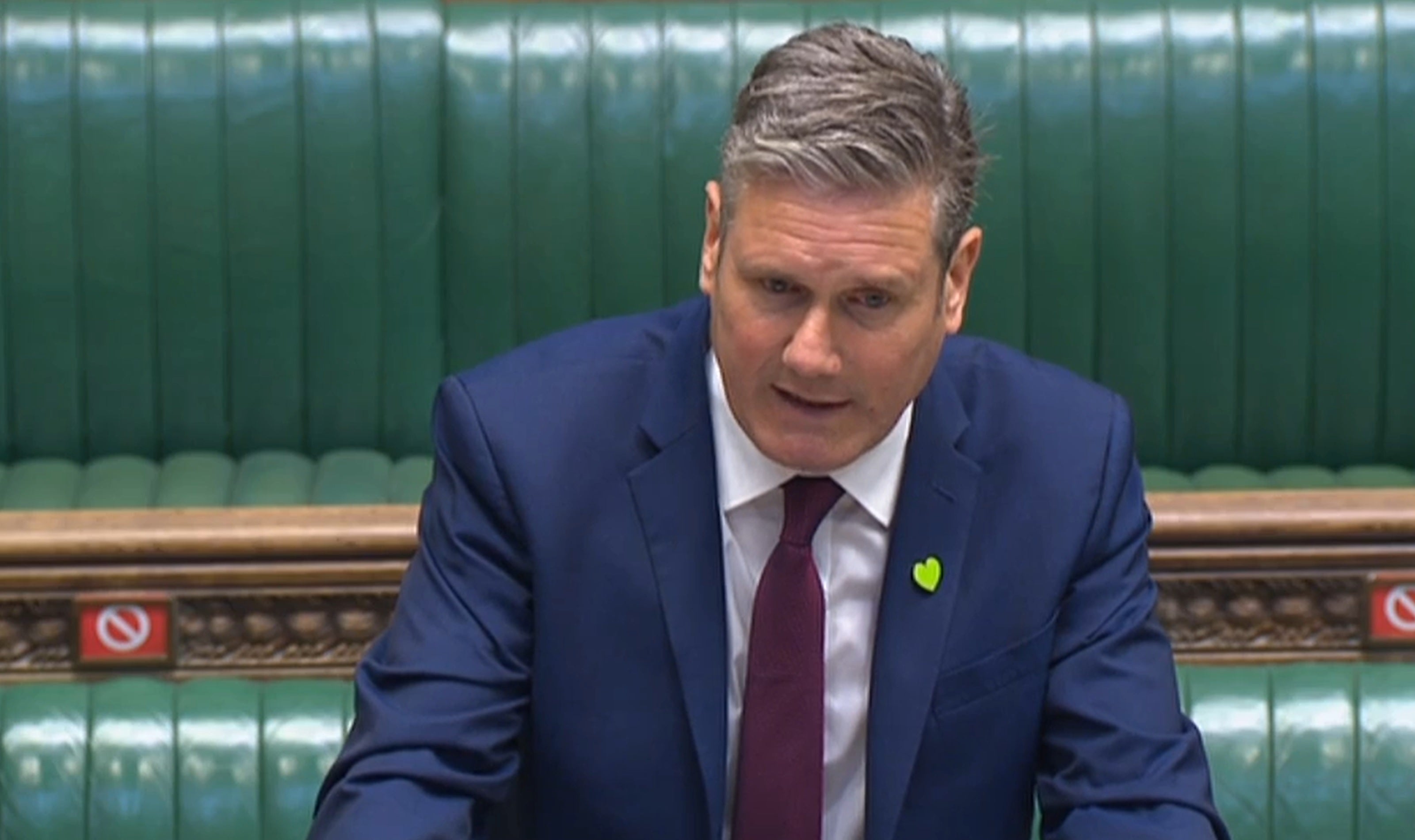There was only one burning question, and Keir Starmer didn’t ask it
The Labour leader failed to ask the question already suggested by Dominic Cummings, says John Rentoul. Namely why the prime minister kept in post a health secretary he had described as ‘totally effing hopeless’


Despite Dominic Cummings helpfully ending his 7,200-word blog post with a short section entitled “A few simple questions to ask the PM”, Keir Starmer chose not to mention Boris Johnson’s former chief adviser in the Commons today.
The Labour leader could at least have asked the first question suggested by Cummings, namely why the prime minister kept in post a health secretary he had described as “totally effing hopeless”. You did not need to read all the Cummings novella to know that the screenshot of a WhatsApp message from Johnson’s personal phone was a matter of some embarrassment to the prime minister. Johnson wouldn’t have given much of an answer, but he doesn’t usually, and whatever answer he gave would have been more interesting than the hairsplitting and diversionary tactics that he actually came up with.
Instead, the cautious lawyer came to the despatch box and Starmer ploughed on with the series of six questions he had already prepared. Starmer “won” those exchanges but he had already lost the battle. It was a remarkable misjudgement. Presumably, Starmer did not feel he had had enough time to assess the blog post, but that quotation about Matt Hancock is simple and unambiguous. It had been advertised by Cummings in advance, in his evidence to the joint select committee, and Cummings had packaged and prepared it in time for PMQs. If Starmer had been caught unawares, with just 20 minutes notice, so had the prime minister. It was the obvious question, and by avoiding it Starmer looked as if he shies away from seeking political advantage in the heat of the moment.
Presumably the honest answer that Johnson would not have given is that he was furious with Hancock, and repeatedly so, but that it would have destabilised the government horribly to move him in the middle of the early stage of the crisis. Nor would it have been obvious who should have replaced him. In one of the messages quoted by Cummings, Johnson wondered about putting Michael Gove in charge of acquiring personal protective equipment, but it is not clear who might have taken over as health secretary if Hancock had been moved.
Something closer to an answer that the prime minister could have given is that he sometimes expresses his frustration in private in ways that he doesn’t necessarily mean. See, for other examples, “let the bodies pile high” and “it’s only killing 80-year-olds”.
As it is, if Starmer had asked the right question, Johnson would have waffled about how proud he was of the entire government in its response to such unprecedented events. He might even have diverted himself into what he said in reply to the question that Starmer did ask – that the Labour leader was doing his “Captain Hindsight” act again.
But at least Starmer would have put up the Cummings critique in lights.
If Starmer had been quicker, he might have also spotted one of the more colourful passages in Cummings’s extended essay and just read it out in the chamber. The description of how Dominic Raab, the foreign secretary, chaired meetings “properly” while the prime minister was ill “instead of telling rambling stories and jokes” would have livened up proceedings. Raab “let good officials actually question people so we started to get to the truth,” said Cummings, “unlike the PM who as soon as things get ‘a bit embarrassing’ does the whole ‘let’s take it offline’ shtick before shouting ‘forward to victory’, doing a thumbs-up and pegging it out of the room before anybody can disagree.”
Sadly, Starmer instead asked six questions that have already been forgotten. I have my notes of them, and they read like a dispatch from the last war. Starmer asked if the prime minister agreed that the delay in lifting coronavirus restrictions had been caused by the government’s failure to stop travel from India. Johnson told “Captain Hindsight” to “adjust his retroscope”. Starmer asked why Britain had more cases of the “Delta variation” than most other countries. Johnson accused Starmer of getting his variants mixed up and awarded him a mark of “gamma”. There is some truth in that: Labour have confused different variants and the dates on which they were identified as variants of investigation and concern, but the feeble classics joke fell flat. Starmer tried to throw one of Johnson’s sound bites back at him: “While the NHS was vaccinating, he was vacillating.” It didn’t really work.
The prime minister half-conceded part of Starmer’s case by saying that the UK is one of the most open societies in the world, to which Starmer retorted that we could have opened up completely next week if only the government had controlled its borders.
I think most people will agree with that. Indeed, Starmer set out the case against the government that commands wide support among the public. But all that will be erased by his failure to ask the only question that mattered: why didn’t the prime minister sack a minister he said was “hopeless”?



Join our commenting forum
Join thought-provoking conversations, follow other Independent readers and see their replies
Comments